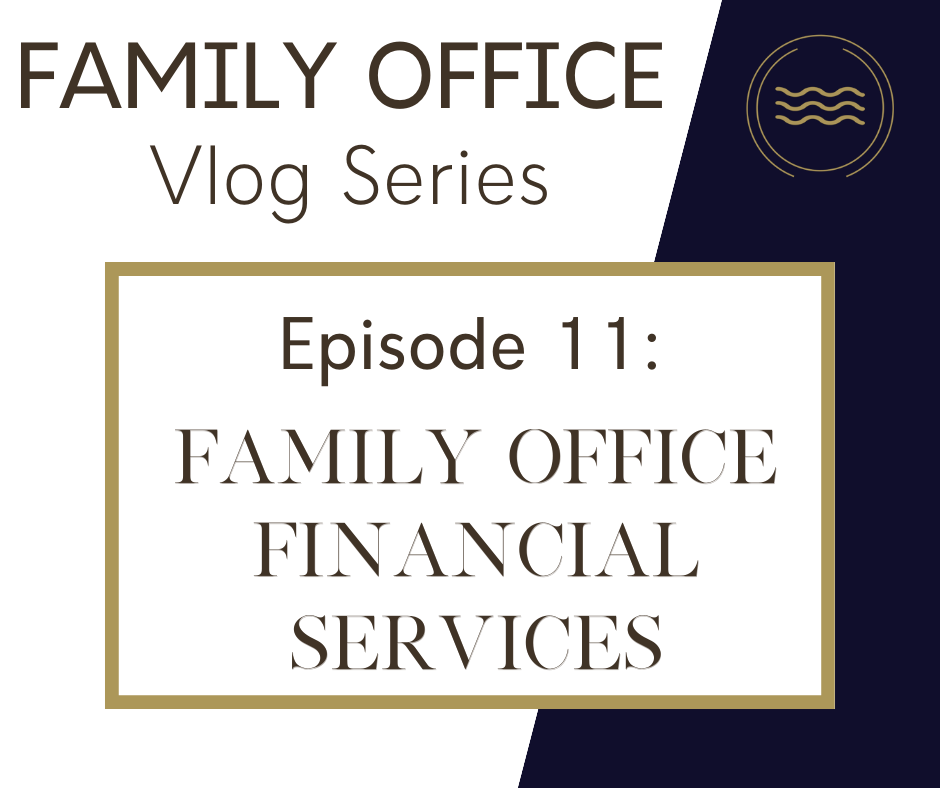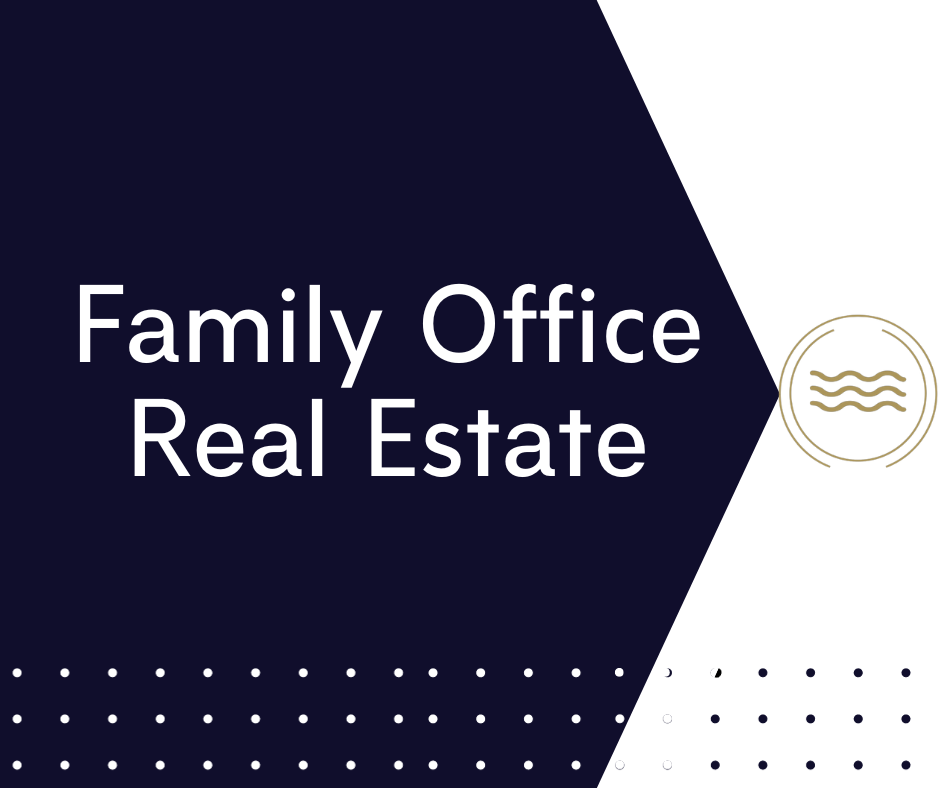
The 3 Pillars Podcast: Administration – People are More Successful and Happy With Good Support
In the sixth installment of the 3 Pillars Podcast, we’re switching it up!
This week, returning guest Thor Conklin will interview our managing director Peter Harper. Thor and Peter discuss the importance of good advisors and how finding the right fit for you can perpetuate a successful family office and give you time to expand and do what makes you happy.
To listen to the full podcast, click the link below or just press play:
TL;DR
Peter Harper: Thanks for joining me again for the next episode of the Three Pillars podcast, and today we’re going to talk about a topic that’s very, very dear to my heart because it’s something that is within our business we spend a lot of time on and that is what we like to call complex administration. And in light of this, rather than me running this and interviewing someone else, I’ve asked my friend and partner, to conclude to join, join me again today. Thor was on a previous podcast with us where we were talking about accountability and why it’s such a critical component of a successful family office. And today we’re going to talk about, as I said, complex admin with a key item of more money, more problems. So I Thor, thanks. Thanks for joining us.
Thor Conklin: Peter, thanks for having me. You know, this is an area that you were so passionate about, and I would really like to start with, why do you find this topic so interesting?
Peter Harper: It’s a really, really good question. I think it’s because, you know, I’ve seen many times a situation where a successful entrepreneur is staring down the barrel of a big exit. And I’ve had a discussion – I’ve had a dialogue with with them maybe six months out from a transaction where I’ll try to explain. You know, the level in which their personal life or their family life is going to get increasingly more complex. Yeah. When they sell their business and it’s often the case of that for whatever reason, whether they caught up in the day to day of their business or the or there’s a lot of work going on with the actual, you know, the transaction around selling their business, that they don’t necessarily have the headspace to really figure that out.
Peter Harper: And I think it’s a major risk point. So, you know, what we see is a liquidity event is happening. People all of a sudden, entrepreneurs all of a sudden have a big chunk of cash through accelerated cash flow and throwing the rule book out the window as far as what they should spend money on and not spend money on. And making some very substantial capital purchases post liquidity that not only erodes the capital base of the family, but adds a huge a lot of complexity to how the family needs to manage their assets. So things like planes, boats, second, third, fourth homes. I think the reason why I’ve become so passionate about it is that you may world more trying to be very intentional about everything I do. And I try and talk to my clients about that is just making sure that they’re aware of, “hey listen, if we’re going to take this next step and add all these operational complexity to our family, let’s make sure that we have the right support and right people assisting us to manage it. So it’s not a major compliance headache once that happens.
Thor Conklin: And there is a lot of compliance through it and one of the mistakes that I see is that you’ve got an entrepreneur running an organization and they think, “Hey, once they have more money, once they don’t have to run the business anymore, things are just going to get easier”. They now start to get more complicated and you start to play in an arena that is different than you’ve played in before. What are some of the issues that you see that come up?
Peter Harper: I think the single biggest issue is these folks understanding their risk profile because it changes dramatically, right? I mean, that whole bunch of different facets of their life. And it happens really quickly. Right. So I think the biggest thing is, if you’re someone who’s worth two to five million – so you within America, probably upper middle class/middle class, and then all of a sudden you transition to fifty to one hundred million overnight, you’ve got a lot more to lose So my risk profile when I’m entering a transaction with, no matter what it is or how I’m engaging with folks, is very different for someone at that networth level of two to five than it is for that person at fifty to one hundred. And so I think when we think about these things like hoe do we de-risk that process when you’ve escalated the risk points in your sort of asset base very quickly. If you haven’t necessarily had the time to work out where are all these pressure points or risk points, we try and compress them, whether it’s insurable risk, investment risk, relationship risk, we try and work with folks to get their heads around that as quickly as possible.
Thor Conklin: And what I’ve noticed is as wealth increases, not only the complexity increases, but it seems like things get very easily scattered about. Many clients that I’ve worked with have forgotten about assets, accounts, and various things. You’ve got a bigger area to kind of get your hands around. I know this is one of the reasons why you create it and sort of doing the kind of work that you’re doing. What are some of the things that you found out there with clients that in helping them get their hands around it and manage it? Because that’s really at the core of what you’re doing here.
Peter Harper: Sure. I mean, part of this is not necessarily complex, right? It’s like understanding the size and scale of any issue. So if there’s more assets, there’s more transactions, there’s more stakeholders. So I think that we’ve talked about in the past, when someone transitions from being heavily focused to their business in a business where there might be a whole bunch of stakeholders across the metrics across who is important. When you transition that and compress through a liquidity event where you’re shifting all the capital out of that model into the family unit, all of a sudden you’ve got all these stakeholders that in the storyline that have no connection to the business but are relevant stakeholders was nonetheless right, because there’s been this major transition of capital.
Peter Harper: So I think when we think about why it’s important to get focused around that, it’s really about that.
Thor Conklin: And everything comes down to measuring success. How do you measure success and how do the clients know that they’re getting their needs met? What sort of metrics do put around this?
Peter Harper: We start out again, going from a situation where they might not have been any sort of family order around the family office at the start, know prior to a liquidity event to all of a sudden we’re saying, how are we going to put a whole rulebook around the families? That we start with vision, values, mission statement of the family, governance, and working out what the rules are. And then really like all things modeling it. Is there enough money that exists that no matter how much they spend, they can’t really do any damage to the family legacy? It’s the same approach in business. The more structure you put around things in order to ensure there’s not we’re not taking on substantial risk, right. We’re not exposing the family to some other issue as a result of what we’re doing, whether it’s buying some form of depreciable assets that you’ve had no experience owning in the past and you don’t necessarily have the skills to acquire the asset, manage it to ensure and within the family, make sure that there’s a clear set of rules around how the assets managed. I think they’re points of focus, right And when you’ve got families that expand over multiple generations, that element is even more complex. So we’ve got an asset that might have existed with the family for multiple generations and everyone still wants to utilize the asset. How are those things managed in such a way that the families are being taken advantage of and no one is wasting money?
Thor Conklin: You know, it’s interesting because I see and I would love to have your take on this, do you find when someone has an event, their assets expand, do you find that they spend less attention on it because there’s more out there and it doesn’t matter. The dollars and cents are kind of rounding errors now, or do you find them you get more focused or is it more of a lackadaisical: “Hey, there’s plenty there. I’m not really as focused on the dollars and the cents”.
Peter Harper: I think it really depends on the individual, I think if someone’s being cost-conscious and thrifty their entire life, they’ll get to the liquidity event and they’ll be penny pinching because they’ll be like this is this might be the only event I ever have. And folks that have always been liberal spenders will be probably at risk of spending all the money I think that there is a very much of truth to that. But I think the single most important factor is that a lot of entrepreneurs think they are serial entrepreneurs. Right.
Peter Harper: Because if they’ve had one business that they’ve ideated or they’ve been a founder of, and they’ve continued to grow that successfully, they think “I can sell or liquidy that I can move into something else and do it again”. And it’s just not the case. I mean, in my experience, folks that are serial entrepreneurs that can do it again and again, someone like Elon Musk, across multiple industries, what they’re really, really unique people.
Thor Conklin: Yeah.
Peter Harper: So we try and have that discussion up front and really get people to own that and say, “Do you think this is your one and only liquidity event?” That’s a factor of a lot of things. Right. What’s your track record in the past? What age are you when you’re selling? And then we try and peel it back from there: you’ve had this acceleration of cash flow. You’ve had this liquidity event. Let’s try and put some rules around buckets of capital. Capital that can be allocated to depreciating assets – we’re going to lose money – capital that we call neutral expenses – we’re sure maybe there is no cash flow being generated, but maybe there’s ability to appreciate value – and then capital that’s actually assigned to grow wealth.
Peter Harper: I think provided they get their head around that, my experience is that they can break a cycle. But I think that’s the biggest thing around this is folks that have been profitable businesses that have been making a lot of money. And they’ve all of a sudden, they’ve taken away the cash flow liquidity events are not always the best outcome for them.
Thor Conklin: You know, really, what I hear you saying is focusing on this and attacking this in the same way you would have business come up with an operating procedure for the entity, for the family, come up with the rules, the regulations, come up with the strategy, come up with the game plan, come up with the budgeting. It’s really like running a business, but forming the family business.
Peter Harper: Yeah, absolutely. I think the admin side, the complex admin, really disputes within the operational bucket.You didn’t break it down into the people – compared to the people bucket of any business. You’ve got the stakeholders within the family are the participants, the direct family participants that are going to benefit from the careful deployment of capital and use of funds. So it’s how do you manage the dynamics?
Peter Harper: I mean, same thing. How do you manage the dynamics within the workforce to ensure that they’re happy and they’re motivated to grow the business and create a good work environment? Same thing within the family. How do you incentivize the family to make sure that they care about retaining capital rather than blowing it on simple things and really respecting the legacy that the original founder may have provided to the rest of the family as far as access to various assets that they may not otherwise have access to or experiences or education that they might otherwise have had access to?
Thor Conklin: It almost sounds like taking the chief operating officer, taking the CFO and general counsel, putting those all together. And that’s really what you’re doing on an outsourced basis for having them remain as the chairman of the board and then really all the operational pieces and the risk management pieces would be offloaded to you.
Peter Harper: I mean, the only difference is you’ve got family dynamics on top of that.
Thor Conklin: And those never end do they?
Peter Harper: No. Which can add a bit of crazy to it. But I think that’s why we actually call it complex admin. Because the complexity can be driven by a number of different factors, whether it’s geographic complexity, because family are scattered around the world or there’s assets around the world. Or it’s complexity, because not only are you trying to execute on a plan, but you’re trying to deal with your family personalities or interactions that that you would not otherwise have to deal with in a business setting.
Thor Conklin: And having the knowledge – this is what I think is so important here – is you’ve been there. You’ve seen these family dynamics. I get to see some of these family dynamics as well with some of my clients. It’s so important that you address some of these things up front so you don’t end up causing a disaster within the family just because you started to add zeros to the networth. And money will accelerate those issues. And if you can deal with them and you have a knowledgeable advisor up front to help you navigate that so you don’t make those mistakes, I think that’s invaluable.
Peter Harper: And I listen, I agree. I mean, I think it takes it takes the transition or the pending transition before people start to understand why this is such a critical component of a successful family of significant means.
Peter Harper: And I think we might have touched on this in the last time we caught up, is that if a lot of folks might sit there and say, “Hey, this is overkill, I don’t need this, I got a strong relationship with the financial adviser or an attorney or whatever else. The entrepreneurial spirit that got me to where I am, I can run my life in the same way with one or two psychics.” I think the biggest push back on I’ve sort of put on that is that it’s true. However, if you want your family and future generations to actually engage in your vision and your legacy and you want your wealth to last more than your lifetime – for a longer period of time, then you need to get your family engaged and they’re not going to get engaged and buy into vision and your mission if you don’t appropriate things where you can include them. And in my experience the only way you can do that is to have a proper experienced team around you that can facilitate a delegation of responsibilities and key tasks within the family unit, family members.
Thor Conklin: And you’ve got one entity that’s tying all those advisers together and making sure that everyone’s reading off the same page. I know in my personal experience, my ex is due to inherit quite a large real estate portfolio. Her and her sister. And her brother happens to run the businesses that are on those those lands. And my ex father in law actually put the properties additional that rents that are going to be charged in the future in the girl’s hands. So now the girls are going to be setting the rates. The brother is going to be the one paying the fare on that. And I said, you’re setting up a family dynamic that is going to cause rifts immediately within that family. These people are going to be at each other’s throats because one is going to want the low rent on the on the land and the others are going to want the highest rent. It’s such a dynamic that’s and knowing the dynamic personally, it’s just going to boil over. Simple little things like that where you think you’re doing a great thing. Boy gets the business, the girls get the land, everybody should be happy. Well, you just turn to the boy’s business, the landlords is his sister.
Peter Harper: And listen there probably was a whole lot of thought put into that dynamic, but then again, it seems a fair but for a cross purpose. And I think that’s why in many ways where you have legacy assets that you’re expecting people to maintain on a go forward basis rather than just liquidity. Liquidity can be managed and produce cash flow, and you can distribute that easily amongst the family and create purpose. But when you’ve got legacy assets, it’s infinitely more complex. It’s often overlooked and broken down purely into “Hey this seems like it’s a fair economic outcome”.
Thor Conklin: So, Peter, how do the listeners address this complex? Because we just touched on a couple of the complexities. This thing goes much, much deeper. I know you have the three pillars. How do they address this complexity? And specifically, what do you do to help address those?
Peter Harper: Well, listen, I think, as I said earlier, it comes with a very clear plan what our preferences are 12 months prior to a liquidity event, be engaging with the family and preparing them for the changes that are about to happen. And what that looks like is building our governance framework for a future family. What is the legal structure look like? What is the rulebook? What has to change and evolve with the estate plan? What has to change and evolve with insurance – insurance needs. And integrating any of these with whoever is going to be the financial adviser for the family. So that we have a very clear framework around what we view as the complex administrative risks to long term achievement of the family’s goal when it comes to their ultimately ultimate objective around legacy. Right, because when you break down the stuff that I’m talking about when it comes to it, it’s the reason why I’m actually so passionate about it.
Peter Harper: This idea, of the administration, operational administration, of a family office ties into pretty much every other part of the family. It has an impact on the financial plan and the annual budgets for the family. It has an impact on how it integrates with the mission of the family and the key integration policies for various family members.
Peter Harper: And so we start with that planning prior to the liquidity event and then we look within the family and say, is there enough liquidity to justify a full C suite? So we are building out a full operational time for the family because I required that. And some families do, depending on size and type of assets, they want to acquire post-liquidity event. Or do we think we can outsource certain components of that? And so some folks will come to us and say, hey, guys, we want you to act as the outsourced CFO for the family outsource general counsel. So we’re managing all the legal negotiations associated with your family assets and sort of control the stuff like bill payment and that type of stuff as well. So making that decision: Are we doing this in-house or are we going to outsource it?
Thor Conklin: And what I really like about your approach to this is it’s a whole family approach. It’s not just going to the leader of the family – person having a liquidity event, but it’s really involving the entire family and doing this as a team, just like you would in an organization or a business. What level of a liquidity event or net worth would people need in order to qualify for these types of services. Where’s the starting point?
Peter Harper: Well, listen, I think that we break down the financial planning side of what we do. I think that can really work for anyone is as little as probably a five million dollar exit. Normally, in my experience, you talk about what’s what’s called a multifamily office, which is someone who hasn’t had a big enough liquidity event where they have a full C suite. When you’ve had a massive liquidity event – so you might be talking, you know, net tax to fifty million up – they might actually say, OK, we’re going to spend the money to have a full six weeks. So, you know, I think really it’s probably as little as five million if you’re just looking for someone to help you with financial support for your family. But if you’re looking for the full suite of services is probably somewhere between 30 and 50 million.
Thor Conklin: Ok, terrific. Well, Peter, I really appreciate you having me on. I appreciate you being here and kind of giving us some insights as to what you’re doing and how it helps the family dynamic. So thank you.
Peter Harper: And Thor, thanks very much for joining me in and running the interview. Really appreciate it.
Thor Conklin: Always my pleasure. Thank you.
Peter Harper: Cheers, buddy, bye.




